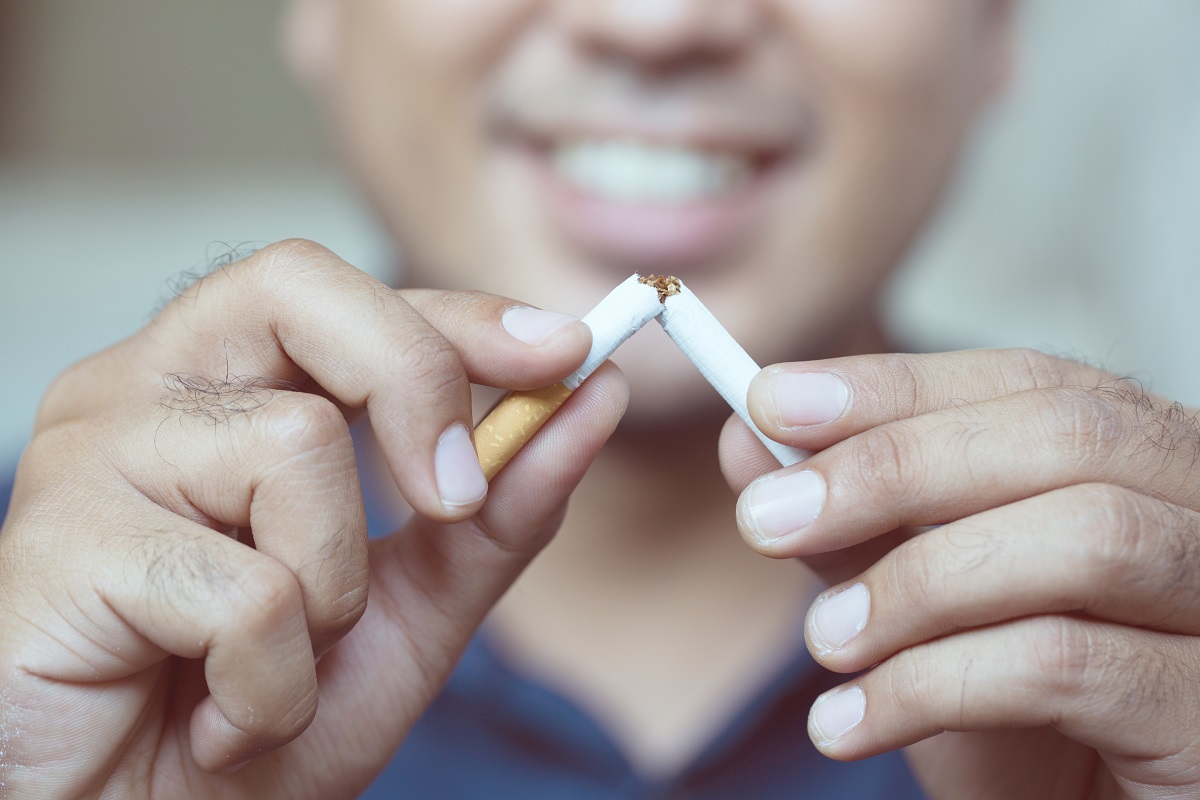
Posted on April 18, 2022
No matter how much you brush, floss, and visit your dentist, certain habits will harm your teeth. Some of them – like chewing on ice – may seem harmless but are wreaking havoc on your teeth. To maintain a healthy smile, avoid the following five tooth-damaging habits.
Smoking & Dental Health
Smoking is well-known for its harmful effects on your general health, but it can also create many dental problems.
Whether it's smoking cigarettes, vaping, or using other tobacco products, this habit can lead to gum and periodontal disease. Since smoking reduces saliva production, you're more likely to have bad breath and tooth decay.
Premature tooth loss and most oral cancers are other potential effects.
In addition, smoking severely hinders healing after oral surgery like wisdom teeth removal or implants. It reduces blood flow to gums, increasing risks of infection, pain, and dry socket. Quitting smoking before and after surgery is crucial for proper recovery.
Chipped Teeth from Nail Biting
Biting your nails, while a common habit, can negatively impact your teeth. The repeated pressure and awkward angles involved can put stress on your tooth enamel, potentially leading to microscopic cracks and increasing the risk of chipping, particularly on the front teeth. Beyond the physical damage, this habit can also introduce unwanted bacteria into your mouth.
Breaking the nail-biting habit is advisable for protecting your dental health. Simple strategies like using bitter-tasting nail polish or keeping your hands occupied can be helpful. Addressing any underlying stress or anxiety that contributes to nail biting may also be beneficial. Taking steps to stop this habit can help preserve the integrity of your teeth.
A minor chipped tooth might not be alarming, but it's still wise to take care. Gently rinse your mouth and avoid chewing directly on the chipped area. Scheduling a visit with your dentist is a good idea to assess the chip and discuss any necessary next steps to prevent potential issues.
Broken Tooth from Chewing Ice
Tooth cracks and chips are more likely if you regularly chew ice. This irreversible damage may result in a composite filling, crown, root canal, or losing the tooth entirely.
Rather than chew ice, use a straw when drinking to resist the temptation. To receive a similar crunchy feeling, replace ice with foods such as apples, carrots, or popcorn (but watch out for those popcorn kernals). Chewing sugar-free gum can replace the oral fixation of chewing ice, too.
Receded Gums from Brushing Too Hard
Overbrushing is possible – and can create a lot of harm to your gums and teeth. Brushing too hard causes enamel, the protective layer on your teeth, to deteriorate, leading to tooth sensitivity and pain. Your gums can recede and expose the roots of your teeth, creating increased sensitivity. Your risk of infection also increases.
Although lost enamel or receded gums are permanent, veneers can assist by protecting the surface of your teeth.
Prevent this habit by using a soft-bristled toothbrush and broad strokes while brushing your teeth gently. Some electric toothbrushes have pressure sensors that provide an alert if you're pressing too hard.
Clenching or Grinding Your Teeth
The subconscious habit of grinding or clenching your teeth can wear down your teeth and increase your risk of cavities and fractures, requiring new crowns or dental implants. Over time, you may develop jaw pain, headaches, and a misaligned jaw from grinding your teeth. This habit can create muscle dysfunctions and chronic facial pain if left untreated.
Many people clench or grind because of stress or sleep-disordered breathing, such as sleep apnea. While sleeping, wearing a nightguard (a device that provides a protective barrier between your teeth) can decrease damage.
Practising relaxation techniques before bed and performing jaw massages to loosen up muscles can help stop teeth grinding.
Fix Bad Oral Hygiene Habits
Avoiding bad oral hygiene habits is only one of the ways you can keep your teeth healthy. To learn more about habits you may be doing that put your oral health at risk, speak to your dentist.
